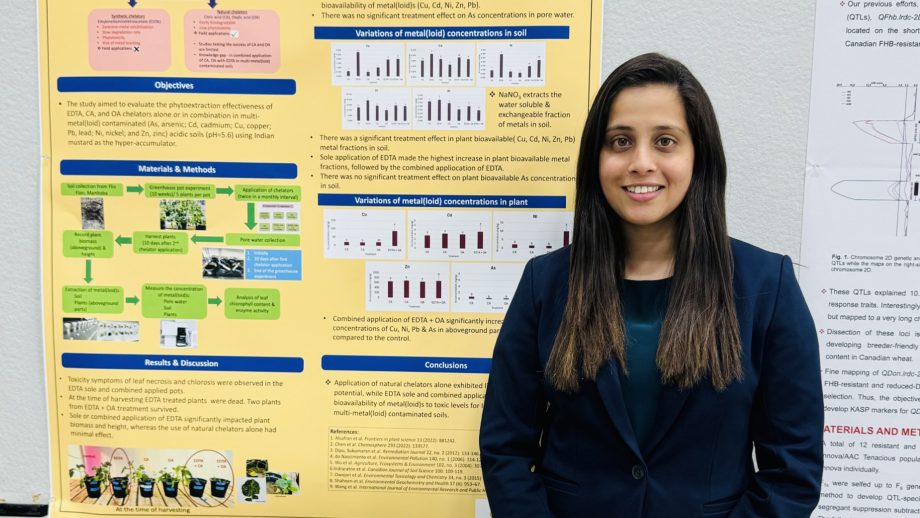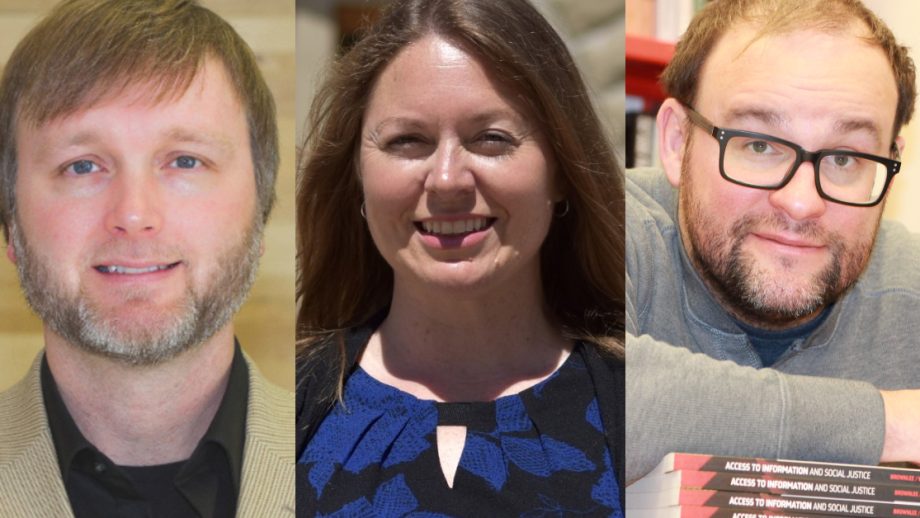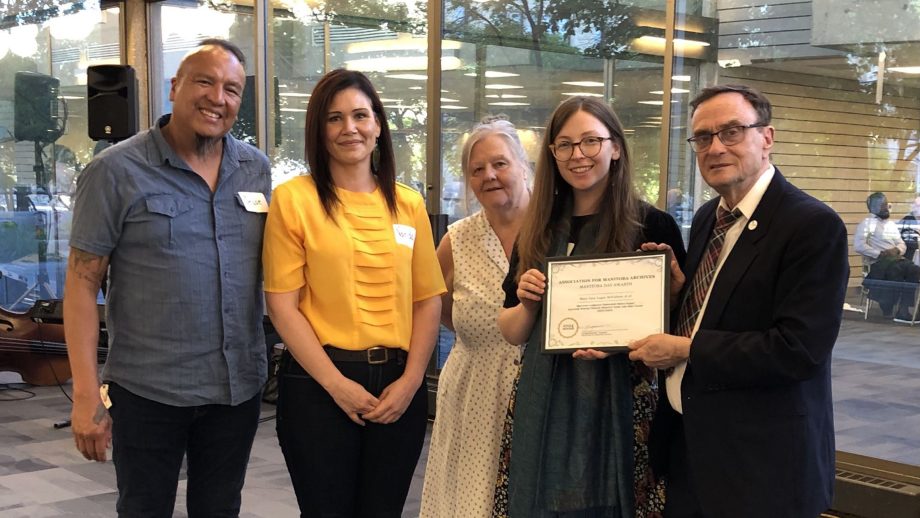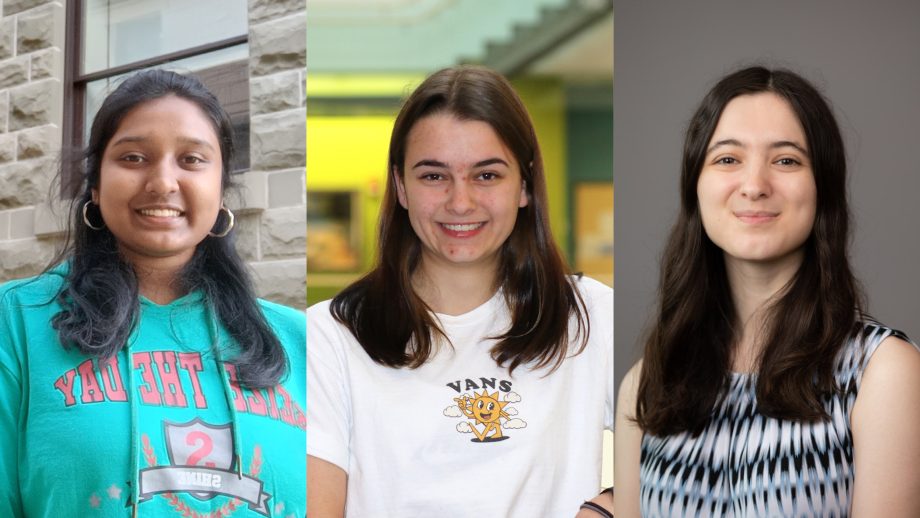
UWinnipeg applied computer science student Sidney Leggett will spend summer 2020 working in an astrophysics lab at Queen’s University. ©UWinnipeg
Sidney Leggett is one of four students across Canada to be welcomed into the Arthur B. McDonald Canadian Astrophysics Research Institute’s 2020 cross-disciplinary internship program, a unique opportunity that provides non-physics majors with $10,000 in funding to participate in astroparticle physics research.
“Sidney will be working with leaders in the field of astrophysics,” said Dr. Melanie Martin. “She was one of four students across Canada to be recognized for her research abilities, and will be applying her computer science background to an important field of science.”
Leggett first realized her passion, and aptitude, for research while working alongside Dr. Martin in The University of Winnipeg’s Pathway to Graduate Studies (P2GS) program in 2019.
“It was a huge boost to my resume getting to take part in P2GS, especially because it was my first research experience and my first chance to work with a physicist,” said Leggett. “I was scared I wouldn’t be able to do it, but it ended up working out extremely well.”
It was through this program that Leggett met honours physics student Melissa Anderson, who invited her to join UWinnipeg’s .caISIS chapter, a student-run group established in 2019 to increase Indigenous students’ access to networking, peer support, and mentorship. This is where Leggett learned about the internship.
When Anderson posted the internship opportunity to a group chat, Leggett was intrigued, but she initially wasn’t going to apply.
“I looked at the application process and it was pretty intense,” she said. “You had to talk to people — and it was due in two days!”
But she couldn’t let the opportunity pass her by without trying. She quickly moved in to gear, connecting with Dr. Matthew Leybourne at Queen’s University to see if he would be interested in hosting her.
“It’s a two-step process,” she explained. “You had to get a professor to agree to work with you, and then you applied together.”
Their successful application was announced in January 2020.
Leggett will spend May to August 2020 working with Leybourne to help streamline the labs data collection and analysis routines.
“I’m excited to take part in a bigger research project,” she said. “It will be a lot more in depth than anything I’ve done before, with a main goal of me helping them with their processes, so they can do their routine work faster, allowing them to go deeper with their data analysis.”
Her internship will focus on streamlining data collection processes of trace element and isotope samples previously collected from the area around SNOLAB (an underground science laboratory specializing in neutrino and dark matter physics).
Leggett hopes her contribution will give the research team new insight into the range of neutrino-less double beta decay in selenium, tellurium, and nickel isotopes in the area.
“Neutrino-less double beta decay is an extremely rare phenomenon,” said Leggett. “Searching for this is a major interest of both physicists and geological chemists.”
While that sounds like enough to keep her busy all summer, Leggett is hoping this research will go smoothly enough to allow her time to participate in a second project exploring the effects of nickel exposure from an epidemiological lens.
“I’m interested in learning more about how radioactive decay in naturally occurring elements affects public health and well-being,” she said.
She is studying applied computer science with a specialization in health technology. After graduating from UWinnipeg in 2020, she hopes to go on to a master’s degree to pursue a career related to epidemiology (the scientific study of the spread and control of diseases). She is already making headway toward that goal, working part-time in the epidemiology department at Manitoba Health, where she took part in a co-op placement in 2019.
Leggett knows that being able to work in a prestigious astrophysics lab, with opportunities to contribute to groundbreaking research, is not something many 20-year-olds get to experience.
“It’s a big, highly-funded, interesting lab,” she said. “I’ve been slowly realizing what a big achievement this is!”




